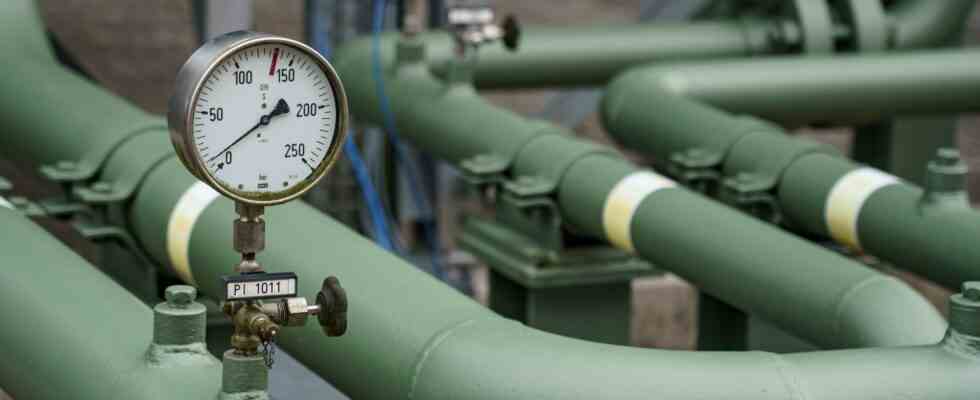Status: 05.09.2022 11:29 a.m
Russia’s gas supply freeze drives prices towards record high. Since Friday, gas has risen by around 35 percent. Because of the energy crisis, fears of a recession are growing.
The renewed stop of Russian gas deliveries caused the gas price to shoot up. Today the price of the TTF futures contract for Dutch natural gas rose by around EUR 72.5 to EUR 281 per megawatt hour. This corresponds to an increase of around 35 percent on last Friday’s listing. The TTF contract is considered a benchmark for the European price level.
This is the end of a period of falling prices, at least for the time being. In the past week, the prices had fallen; Investors were reacting to the fact that European gas storage facilities were being filled faster than expected. For example, German gas storage facilities are currently around 86 percent full. Last year, at this point in the year, the level was still around 60 percent.
Euros on the decline
The escalation of the gas crisis is also sending the euro down again: today the common currency fell to 0.9879 US dollars, its lowest level in almost 20 years.
It is the fear of a deep recession caused by energy shortages and high energy prices that is worrying investors. High energy prices, the risk of a gas shortage and the fiscal and regulatory response to this are shaping the prospects for economic growth and inflation in the euro zone much more than anything the ECB can do with its interest rate policy, comments Holger Schmieding, chief economist at Berenberg Bank.
Markets in turmoil
In such a situation, investors shy away from the risk of investing in the euro, as a recession would further weaken the common currency. Not only is the foreign exchange market in turmoil – the stock market is also reacting to the situation on the energy market with severe turbulence.
The slump in European stocks combined with the falling euro reflects the economic and energy crises the euro zone is facing, said Neil Wilson, market expert at online broker Markets.com.
The ECB in the eyes of investors
Against this background, the interest rate meeting of the European Central Bank (ECB) next Thursday will be of particular interest to investors. After all – in addition to concerns about a deep recession in the euro zone – it is also the interest rate differential between Europe and the USA that is weighing on the common currency. The higher interest rates in the USA are increasing bond yields there and are therefore causing investors to divert their funds from the euro area.
The ECB is in a dilemma: Many financial experts believe that raising interest rates too much could further weaken the economy. However, if the central bankers react too weakly, this could exacerbate the persistently high inflation, experts say.
The analysts at DZ Bank are examining another problem that is being exacerbated by the weakness of the euro. There is further price pressure from the weak euro against the US dollar, because this is why import prices for the commodity-dependent euro area have increased, they write in a market commentary. The weakness of the euro also causes high energy prices, which in turn increase inflation and weaken the economy – and thus further burden the euro.

